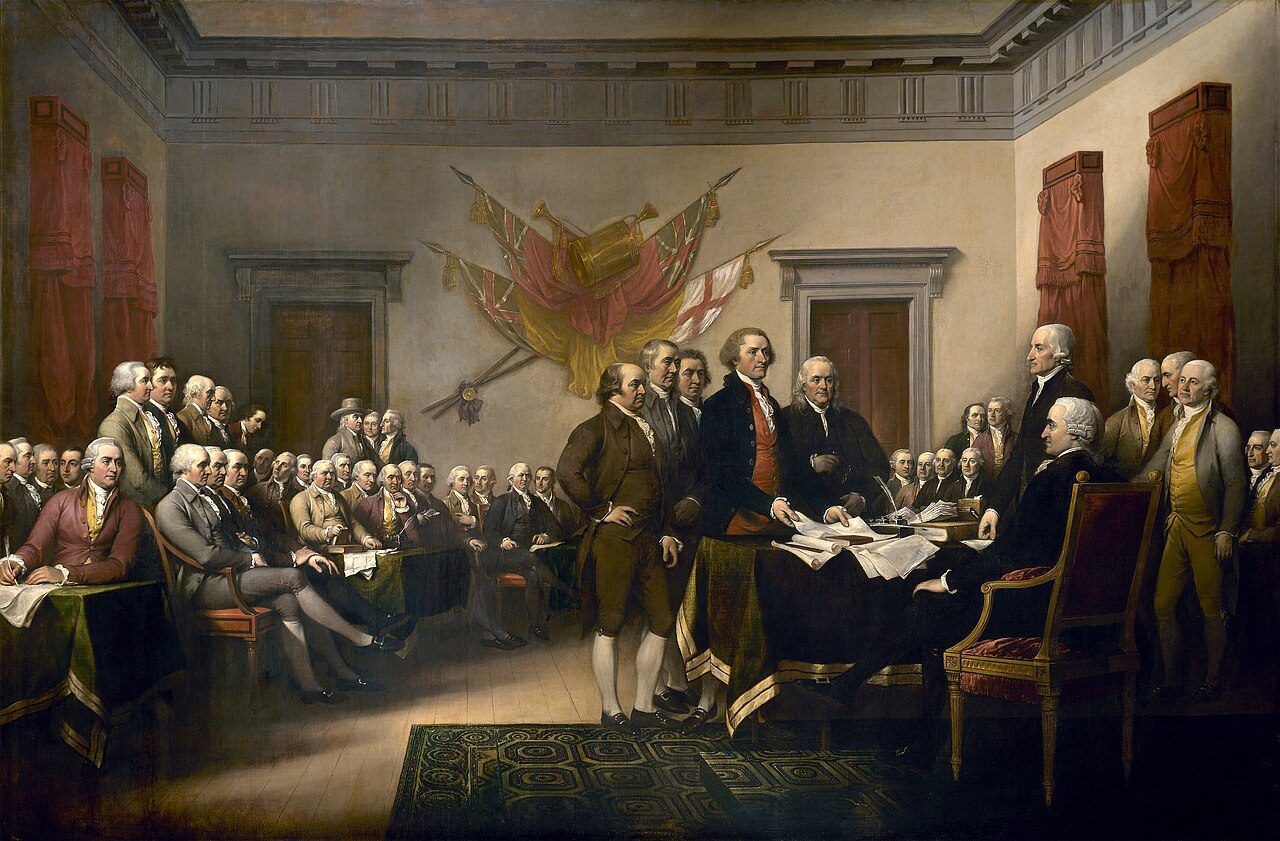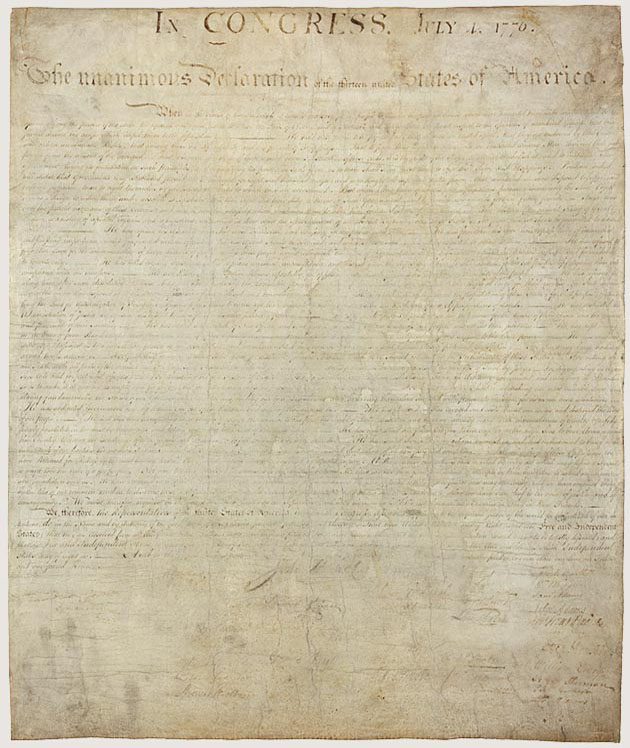America’s Signers of the Declaration ‘put it all on the line’

Americans often take for granted the hard-won freedoms celebrated at the Fourth of July. We should not.
Our duty not to forget starts with the Declaration of Independence signers. The signers had everything to lose if the effort was unsuccessful. One forgotten part of the Declaration is at the end, where they pledge their great fortunes and honor to the cause.
It reads:
And for the support of this Declaration, with a firm reliance on the protection of divine Providence, we mutually pledge to each other our Lives, our Fortunes and our sacred Honor.
Even though they were successful in the cause, the signers suffered mightily for their open defiance of the Crown. Many of the signers had their lives ruined by what they unleashed.
John Hart of Trenton was chased by Hessians while his wife Hart was on her deathbed. At age 65, Hart slept in caves and woods, and returned home to find his wife dead, and 13 children taken away. Abraham Clark of New Jersey was captured to the British prison ship Jersey, “where 11,000 Americans were left to die.” The elder Clark refused to recant. His Wikipedia slams him as a slaveholder, but says nothing of his suffering for the birth of his country.
Signer Philip Livingston, a wealthy New York importer, had his businesses seized and his houses and estates confiscated; his family became refugees, and he died as he sold off every bit of property to help the U.S. keep enough credit to pay for the war.
John Witherspoon, who was president of what would become Princeton, had his library burned and troops billeted in his house. Friend Richard Stockton, betrayed by sympathizers, was pulled from bed and beaten, and sent to jail, where he was starved. He died broke, and his family lived off charity. His house, Morven, was looted and pillaged, though it was restored by Robert Wood Johnson and for a time became the New Jersey Governor’s Mansion.
William Ellery of Newport, Rhode Island, had his house burned to the ground. Thomas Lynch Jr. of South Carolina suffered in the war of “privation and exposure” and on a trip for respite, he and his wife drowned at sea. Three other South Carolina signers, Edward Rutledge, Arthur Middleton and Thomas Hayward Jr. were taken as prisoners to St. Augustine, Florida (we were then British), while their plantations were destroyed.
In July 1976 as part of the Bicentennial, The American Legion Magazine published the history of these men, entitled “They Put It on The Line.” The story, by Texas historian T. R. Fehrenbach, was actually a reprint from July 1965, after so many requests.
It was reprinted in 1976 and 1992 as a book by the Texas branch of the National Society of the Colonial Dames, paid for by Texas philanthropist Mollie Steves Zachry. It is hard to find today, but it is online.
Fehrenbach summed up the contributions of the signers better than anyone else:
“Most of them had not wanted trouble with the Crown … of the 56 who signed the Declaration of Independence, nine died of wounds or hardship during the war. Five were captured and imprisoned, in each case with brutal treatment. Several lost wives, sons or family. One lost his 13 children. All were, at one time or other, the victims of manhunts. Twelve signers had their houses burned. Seventeen lost everything. Not one defected or went back on his pledged word.”

When they signed, they feared hanging, the price for treason. Fehrenbach wrote that signer William Ellery looked at the faces as they signed; none were afraid. There was humor. William Harrison of Virginia, who was fat, told tiny Elbridge Gerry that “With me it will be over in a minute. But with you, you be dancing on air an hour after I’m gone.”
As the war wound down, there were more sacrifices. Thomas Nelson of Yorktown fought to keep his house and merchant business. When Lord Cornwallis took the town, the Brit, out of respect for Nelson, did not fire upon his house, but took it as British headquarters. At Nelson’s insistence, he had troops fire on his own house.
As part of the 1976 Bicentennial, the Federal government dedicated a small, rarely visited monument in their honor on the Mall in D.C.
In 2026, the U.S. approaches the 250th anniversary of the Declaration. Celebrations are planned. But there is disquiet in the land, and worry. The government has a hand in every minute aspect of our lives, down to our phones. The one thing we do have is our freedom, given to us by God, and paid for by many generations of Americans after the founders.
There are two questions:
How can we honor their memory in the run-up to July 4, 2026, the nation’s 250th Anniversary? And what have we laid on the line?
Garland Pollard is editor of the Beacon. Email letters and comments to editor@bocabeacon.com.
- New Farlow’s restaurant Chophouse285 anchors Englewood’s Dearborn Street
- Schmaltz & Pepper for All That Jazz
- Charlotte meets on beach access; Placida park project moves forward
- World of mangroves the subject of conservation lecture series talk at Englewood Chamber of Commerce
- Magano at Camera Club talks on light-painting and photography









